- Home
- Terry C. Johnston
Seize the Sky sotp-2 Page 2
Seize the Sky sotp-2 Read online
Page 2
“Here, my son.” Monaseetah gave him an elk-horn ladle she had pulled from her wide belt. “Bring me water from the river. Take it. Go now.”
She nudged him down the hill toward the river that lay like a silver ribbon beneath the wide white sky. At least it would be cool beside the water, he thought.
Dodging the huge bloating horses and gleaming soldier corpses, he went to the river and scooped water into the ladle. Mounted warriors screeched past him as they rode to the south. Shaking, the boy spilled half of the cool water on his lonely, frightening climb back up the long hillside. He slid to a halt beside his mother and choked back the sudden foul taste of bile washing his throat.
It surprised him. For the first time this afternoon he wanted to vomit. He gulped and swallowed, fighting down the urge to rid himself of that breakfast eaten so long ago.
As his mother began to wash the white man’s head and face, the boy turned away.
She used a strip of dirty, stiffened white cloth—one of the dead soldier’s stockings. If only these white men wore moccasins instead of the clumsy black boots that made their feet hot and sticky. With moccasins the white men would not need to wear these silly stockings. He smiled and began to feel better for it.
This was his seventh summer. He was too old to act like a child, the boy decided.
Finally he turned back to watch his mother scrub the last of the black grainy smudges from the edges of the bullet hole in the soldier’s left temple. Little blood had oozed from the wound.
Perhaps this pale man had already been dying from that messy bullet wound in his side. The boy had seen enough deer and elk, antelope and buffalo, brought down with bullets. And he knew no man could live long after suffering a wound in the chest as terrible as this. This soldier had been dying, and he was shot in the head to assure his death. Someone had wanted to make certain that this soldier was not taken alive. Someone had saved this pale-skinned soldier from the possibility of torture by sending a bullet through his brain.
Strange. As the boy looked about the hillside, he could see that the warriors had taken no prisoners. As far as his young eyes could see along the ridges of shimmering heat and yellow dust and black smoke and red death—none of these pony soldiers had lived for longer than it took the sun to move from one lodgepole to the next.
The boy sat quietly and watched his mother at work. With care she washed the white man’s entire face, scrubbing the dirty sock dipped in river water over the bristling stubble of red gold sprouting on the burnished cheeks and strong chin. The lips were cracked, peeling and bloody from days in the sun and from drinking alkali water.
The boy’s eyes wandered down the pony soldier’s frame until they froze on the wound in the man’s left side, just the length of two of his little hands below the white man’s heart. An ugly, gaping hole; he imagined the exit wound had to be even bigger. Surely the warrior who had shot this pony soldier had been no more than one arrow flight away when he fired his gun—no more than fifteen of his own short little-boy strides. A shot fired far enough away not to bring instant death—but close enough to insure that death would be soon in coming.
He wondered: In his last moments had this soldier gazed down this slope, seeing all the lodges and wickiups where slept the young unmarried warriors along the bank? Hadn’t the soldier seen the great village stretched for miles along the Greasy Grass? Or had he seen and refused to believe his own pale blue eyes now staring in death at the summer sky of the same robin’s-egg hue? Had he plunged on down toward the villages and his own death?
How could his mother treat this soldier as she would a member of her family? They had no relatives. Monaseetah and her two sons were alone in this world. It had been twelve winters since Monaseetah’s mother was killed by pony soldiers far to the south along the Little Dried River. Eight winters now since Monaseetah’s father had suffered the same fate at the hand of other soldiers in another dawn attack. His thoughts and fears tumbled: Why had his mother told the old Miniconjou woman this white-bellied soldier was a relative?
The stench of dried blood and putrefying gore clung strong on the breeze. He rubbed his nose and fidgeted, wanting to be gone. His mother’s hand quieted his nervousness.
“I am finished at last, my son.” She pulled him round to her gently. “I want you to listen to my words with all your heart. Listen to me with your soul, son of my body.”
The boy nodded, wanting only to be gone from this terrible hillside.
Monaseetah tossed aside the dirty stocking she had used to bathe the dead soldier. When he studied her eyes for some answer to his confusion, the boy discovered tears glistening in her dark eyes, streaming down her coppery cheeks. He thought, She is the prettiest woman I have ever seen.
With a tiny dirty finger he touched her cheek, wiping away a single tear. Without a word Monaseetah took his tiny hand, directing him to touch the white soldier’s hair.
“The red gold of a winter’s sunrise,” his mother whispered as she touched the soldier’s hair.
Monaseetah guided his hand to stroke her own dark, silky hair falling unfettered in the hot breezes across her quaking shoulders.
“Black, my son. Sleek as the raven’s shiny wing when it snags the sun’s rays in high flight.”
She took the boy’s hand and brought it up to touch his own head. She held some of his own long hair before his eyes.
“Your hair is not like your mother’s.”
“I do not understand,” he said, quivering.
Again Monaseetah took his hand to touch first the soldier’s thinning, close-cropped hair. Then her own long, loose hair. Finally his own. Looking at it perhaps for the first time in his young life, the boy found himself growing scared, with a cold creeping right down to his toes.
“You were named Yellow Bird because of the color of your hair, my son.”
He watched her choke back a sob that made his mother shudder. She swiped at her wet cheeks before he worked up courage to ask.
“You are my mother, aren’t you?”
“Yes.” She smiled through the haze. “I am your mother.”
Anxiously Yellow Bird wrung his hands through his hair, not understanding, afraid to accept what his mother had told him. He did not like the feeling at all. He had been scared before, he remembered. Like last summer when his pony had been spooked by a rattler, bolting into the hills as he clung to its mane in desperation. Yet right now he was more frightened than he had ever been.
Yellow Bird bolted to his feet. As quickly his mother snagged his wrist and yanked him down beside her. He fell to his knees, sprawling over the naked pony soldier.
He cried out as his face brushed the pony soldier’s cold, bristling cheek.
Fiercely he clamped his eyes to shut off the flow of hot tears. In a flood he figured out what she wanted him to tell her. But Yellow Bird knew his mother wanted him to say the words himself.
Desperately he hungered for escape. The hillside filled his nostrils with the stench of blood and bowels released in death, gore scattered across the gray-backed sage and yellow dirt and dry red-brown grasses in savage, sudden, welcome death. At once Yellow Bird could not breathe.
“No!” he shouted. It scared him to hear the unbridled fear in his own voice.
“Yes,” his mother cooed. She cradled his little hands within hers, holding him in this place of terror.
“No-o-o!” Yellow Bird whimpered like a wounded animal caught in a snare.
Again and again he whipped his head from side to side, whimpering his word of denial.
“It is so, my son.”
Suddenly he let his tense, cold muscles go. Yellow Bird stopped fighting his mother. Instead he collapsed against her, sobbing as he stared down at the soldier. Once again he took up some long strands of his own loose, unbraided hair, lifting it into the bright, truthful sunlight. There before his eyes it shimmered, each strand much lighter than the dark, coarse hair of any other Cheyenne he had ever known in his few summers of life.
After what seemed like another lifetime, Yellow Bird brought his face away from his mother’s soft breast where his tears had soaked through her soft buckskin dress. Already the sun had begun to cast long shadows in its relentless march to the west.
“Yes, Yellow Bird,” Monaseetah said quietly. “This is your father.”
BOOK I
THE MARCH
CHAPTER 1
THE dawn air was filled with that heady, earthy fragrance of fresh dung dropped by a few of the hundreds upon hundreds of mules and horses crowding the parade ground.
Springtime brought with it at least one blessing to this land of tractless, far-reaching prairie: enough rain to hold down the thick yellow dust. But rain also brought mud and great, swampy puddles that collected across the swales and at the foot of every hillock. Those puddles in turn bred mosquitoes, winged tormentors soon to rise over this northland as they had for his last three springs here on the Missouri. Huge creatures swarming above these great grasslands in a dark cloak like the horde of locusts swarming above the Egypt of ancient pharoahs.
Still, it would take something far hardier than a plague of mosquitoes to drive him from this western frontier. Perhaps only a call to Washington City itself.
“Mr. Burkman.” He turned to his personal aide. “I see you scribbling in your little book again.”
The short, dark orderly looked at that tall soldier beside him with something akin to worship. “Yes, General.”
“So tell me what you’ve written about this momentous morning so far … a morning of which grand destinies are made, Mr. Burkman.”
The young private cleared his throat and glanced up at his benefactor nervously. “Uhhh, all I’ve written so far is Wednesday, seventeen May, 1876, sir.”
“Nothing else?” His azure blue eyes scanned the activity on the parade ground. “All this time here on the porch this morning, and all you’ve been inspired to write is the date?”
“There’s more, sir—but I’m a little at the loss for words, General. I’ve never been on a campaign before … it’s all a bit overwhelming to me right now.”
“I quite understand, Private,” the officer replied with that famous, peg-toothed smile of his, slapping his orderly on the back. “Tell me, then, have you scribbled anything else of note?”
“Only … Fort Abraham Lincoln, Dakota Territory,” John Burkman said. Then he uttered the rest more softly. “We prepare to embark on a mission of national importance, one that will spell the final subjugation of these plains for the settlement of white civilization, or the continuation of the Indian Wars, which have so long plagued this great land.”
The officer smiled beneath the bushy mustache that hung like corn straw over his mouth. “Very good, John. I like it. But—you ought to scratch the last part of that. We’re going to put an end to the Indian Wars once and for all.”
The young private licked nervously at the dulled point of his pencil, then set it to work, scratching across the sheet of his ledger, attempting to capture more of his commander’s words for history. “Yes, sir,” he replied absently as his hand flew across the page.
“Keep at it, Striker!” He patted the young man’s shoulder again. “You’ll have much to tell your grandchildren about this campaign. There won’t be a man, woman, or child across this great republic of ours who won’t know about the glory-bidden U.S. Seventh Cavalry.”
He stepped toward the edge of the porch, eyes raking the parade ground approvingly. Finally he stuffed his pale fingers into the skintight yellow doeskin gloves and tugged at the tall fringed gauntlets as he plodded down two steps and stopped, breathing deeply of the air of anticipation that hung thick over the parade.
“John, there won’t be a soul from Washington City to St. Louis who fails to know about George Armstrong Custer when the dust settles and my personal standard flies over the battlefield.”
“Yes, General!” Burkman hopped down the steps of the Custer home constructed just west of the massive parade ground so he would stand beside the taller man. He truly idolized the dashing “Boy General,” hero of the Union Army of the Potomac during the Civil War.
He turned to Burkman and again smiled engagingly beneath the bristly mustache. “St. Louis is the site of the Democratic convention next month.”
Burkman was purely muddled now. “I thought you hated politics and politicians both, sir. Why, after what President Grant and the Congressional Committee did to you—”
“Power brokers, Mr. Burkman.” Some of that bright smile had drained from a face beginning to show the signs of age and the toll exacted by years lived at the mercy of wind and rain, sun and cold. The march of time was marked like a war map on that face. “Power to accomplish much of what needs to be done rests in the hands of a few power brokers … and they can select men who will grab the reins of our nation and lead it into our second century.”
“Yes! Our centennial, sir. What an opportunity—”
“Let us take that opportunity in hand—a destiny thrust on few men, Mr. Burkman, a destiny most men would shrink from. Stay at my side, young man, and I’ll take you into this great republic’s second century.”
“I’d be privileged to stand beside you under any circumstances, sir.”
“For the time being, Private Burkman, what say we just head for the Yellowstone?” Custer tugged the cream-colored, wide-brimmed slouch hat over the short, uncharacteristic stubble that covered his head. He worried the new hat’s sweatband into place. “It’ll take some time getting used to this damned haircut Libbie gave me yesterday.”
“Why so short, sir?”
“I wasn’t the only one. Lieutenant Varnum, who heads up our detail of scouts talked me into it, really. Seemed like a good idea at the time. Easier to care for and a hell of a lot cooler. So I got a pair of horse clippers from the livery sergeant and set Libbie to work in the parlor.” He yanked the hat off again and ran a callused, freckled hand over the reddish, thinning stubble. “Not a bad job of it either.”
Custer quickly added, “Not a bad job for a green recruit going west on his first campaign to fight hostiles along the Yellowstone! A dad-blamed shavetail! That’s just the way I feel with this jack-gagger haircut.”
He skipped on down the rest of the wide steps that spilled onto the parade ground from the front veranda of the second home he had built for Libbie at this northern post. Standing across the river from the frontier town of Bismarck, Dakota Territory, the first army outpost built nearby in 1872 had been christened Fort McKeen, home then for the Sixth U.S. Infantry. Not far from it the new buildings of Fort Abraham Lincoln had sprung up on the northern prairie to house some nine companies so that when Custer’s regiment arrived late in the summer of 1873 after a futile pursuit of the Sioux along the Yellowstone, this new home of the Seventh Cavalry sat ready in its fresh coat of paint. Army gray, a color known only for its distinction of losing itself against the prairie background. For some time, quarters were cramped, as the post had room enough for only half the regiment.
Winters could be murderous, with subzero temperatures for weeks at a time, brutal temperatures requiring one soldier’s full-time efforts to keep the numerous fireplaces stoked in the Custer household: six fireplaces on the ground floor and four on the second story. It had been one of those second-floor fireplaces that caused the house to burn to its foundation in the frigid month of February 1874. Just about everything the Custers owned had been destroyed in that disaster, but Libbie mourned most the loss of but one cherished item: a wig she had woven from trimmings of her beloved husband Autie’s long, curly, red blond hair.
As soon as the ground thawed that spring, a second luxurious home had risen on the same foundation. The pride not only of the Custers, but of the entire Seventh as well, it boasted a thirty-two-foot living room with a wide bay window, and a billiard room on the second floor.
No home with so much style would be complete without a library adorned with Custer’s favorite classics, along with biographies of famous gener
als, history texts, and a smattering of fiction. In addition, there were several rooms where he exhibited his collection of guns, Indian artifacts, and stuffed animal trophies collected over his years in the west. In that decade Custer had harvested quite a collection of trophies, each taken with a nonregulation sporting weapon. His reputation with a rifle had spread far and wide. Even Richard A. Roberts, civilian secretary assigned to General Alfred H. Terry for this summer’s Sioux campaign, had written, “Custer is the best shot with a Creedmore rifle.”
Over the door to Custer’s study, where many of his most prized mementos were displayed, hung a hand-lettered sign reading:
MY ROOM
Lasiate Ogni Speranza, Voi Ch’entrate
(All hope abandon, ye who enter here)
CAVE CANUM
(Beware the Dog)
In that study Custer had spent many hours toiling over his memoirs the last couple of years, insisting that Libbie be in the room with him while he wrote “Battling with the Sioux on the Yellowstone” and began his “War Memoirs” for Galaxy magazine readers back east. It seemed everyone on the other side of the Missouri River thirsted for his vivid tales of action and adventure, danger and bloodshed along the western frontier. So important was reading and writing to his own life, Custer even enjoyed teaching others to read. Many were the hours he would spend on idle winter afternoons with servants’ and enlisted men’s children gathered round his knee, a reader in one hand, a speller in the other. These scenes were a delight for Elizabeth Custer to watch, for Libbie and her darling Autie had long ago given up the hope of ever having children of their own.
Custer ordered a huge garden planted behind his house, enclosed by a tall, stout fence to keep his numerous hunting dogs and staghounds out. The general preferred a lot of fresh vegetables to the usual army rations. Family cook Mary saw to it that the general and his lady were fed appetizing meals envied all along Officers’ Row.

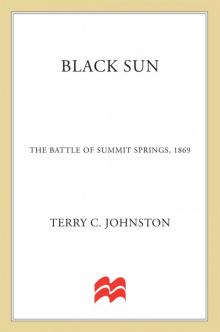 Black Sun, The Battle of Summit Springs, 1869
Black Sun, The Battle of Summit Springs, 1869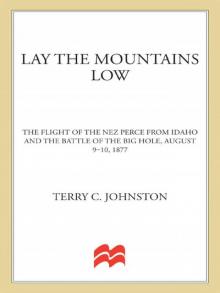 Lay the Mountains Low
Lay the Mountains Low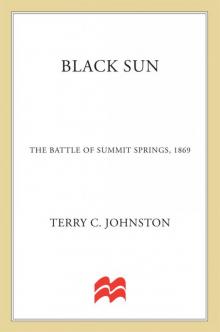 Black Sun: The Battle of Summit Springs, 1869 (The Plainsmen Series)
Black Sun: The Battle of Summit Springs, 1869 (The Plainsmen Series)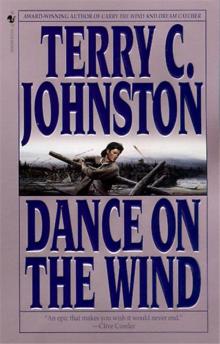 Dance on the Wind tb-1
Dance on the Wind tb-1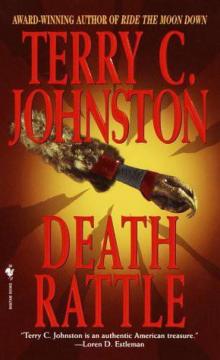 Death Rattle tb-8
Death Rattle tb-8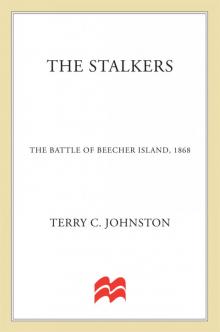 The Stalkers
The Stalkers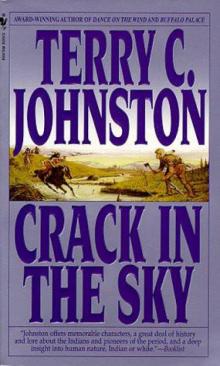 Crack in the Sky tb-3
Crack in the Sky tb-3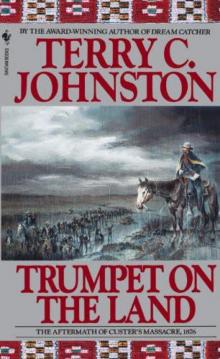 Trumpet on the Land: The Aftermath of Custer's Massacre, 1876 tp-10
Trumpet on the Land: The Aftermath of Custer's Massacre, 1876 tp-10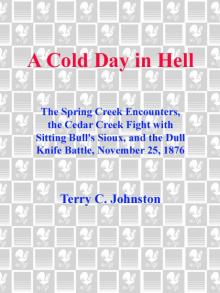 A Cold Day in Hell
A Cold Day in Hell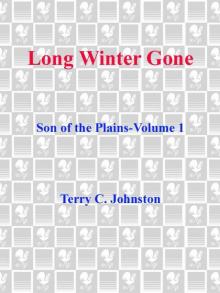 Long Winter Gone: Son of the Plains - Volume 1
Long Winter Gone: Son of the Plains - Volume 1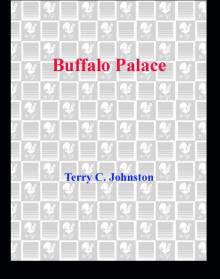 Buffalo Palace
Buffalo Palace Cries from the Earth
Cries from the Earth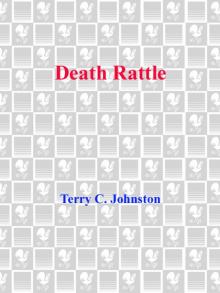 Death Rattle
Death Rattle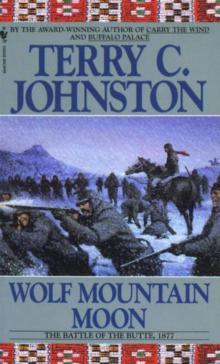 Wolf Mountain Moon: The Battle of the Butte, 1877 tp-12
Wolf Mountain Moon: The Battle of the Butte, 1877 tp-12 Crack in the Sky
Crack in the Sky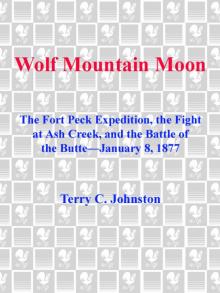 Wolf Mountain Moon
Wolf Mountain Moon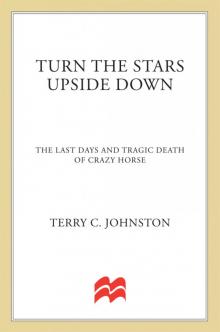 Turn the Stars Upside Down: The Last Days and Tragic Death of Crazy Horse
Turn the Stars Upside Down: The Last Days and Tragic Death of Crazy Horse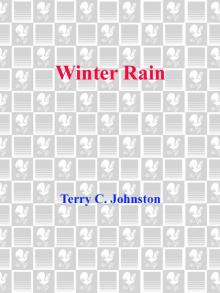 Winter Rain
Winter Rain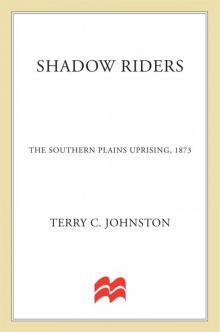 Shadow Riders: The Southern Plains Uprising, 1873 (The Plainsmen Series)
Shadow Riders: The Southern Plains Uprising, 1873 (The Plainsmen Series)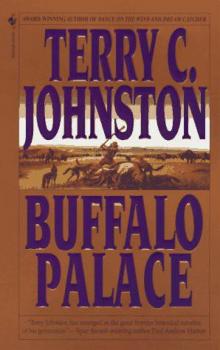 Buffalo Palace tb-2
Buffalo Palace tb-2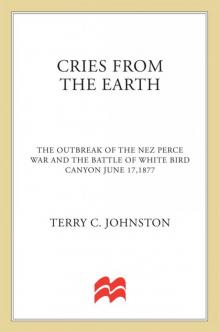 Cries from the Earth: The Outbreak Of the Nez Perce War and the Battle of White Bird Canyon June 17, 1877 (The Plainsmen Series)
Cries from the Earth: The Outbreak Of the Nez Perce War and the Battle of White Bird Canyon June 17, 1877 (The Plainsmen Series)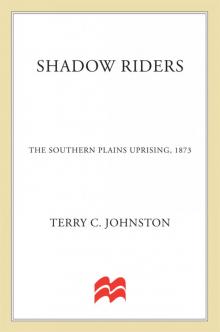 Shadow Riders, The Southern Plains Uprising, 1873
Shadow Riders, The Southern Plains Uprising, 1873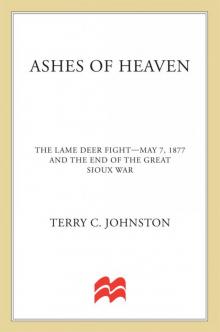 Ashes of Heaven (The Plainsmen Series)
Ashes of Heaven (The Plainsmen Series)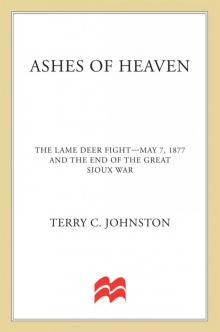 Ashes of Heaven
Ashes of Heaven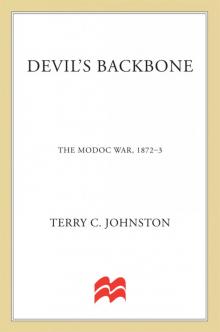 Devil's Backbone: The Modoc War, 1872-3
Devil's Backbone: The Modoc War, 1872-3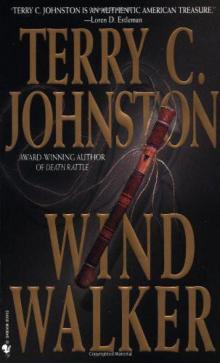 Wind Walker tb-9
Wind Walker tb-9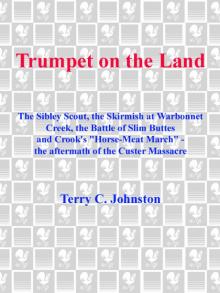 Trumpet on the Land
Trumpet on the Land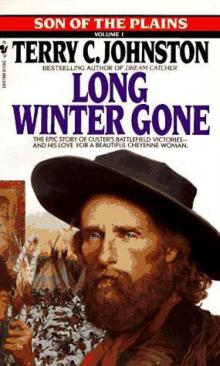 Long Winter Gone sotp-1
Long Winter Gone sotp-1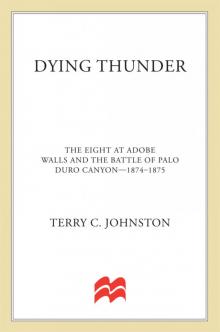 Dying Thunder
Dying Thunder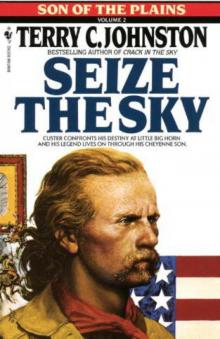 Seize the Sky sotp-2
Seize the Sky sotp-2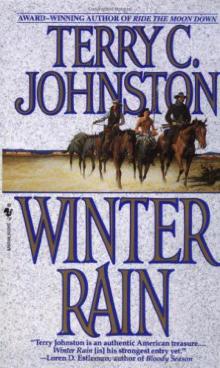 Winter Rain jh-2
Winter Rain jh-2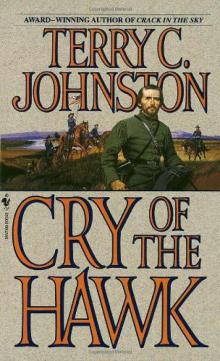 Cry of the Hawk jh-1
Cry of the Hawk jh-1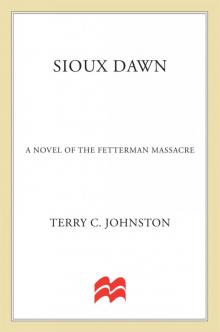 Sioux Dawn, The Fetterman Massacre, 1866
Sioux Dawn, The Fetterman Massacre, 1866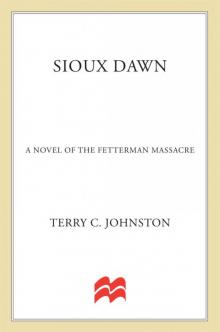 Sioux Dawn: The Fetterman Massacre, 1866 (The Plainsmen Series)
Sioux Dawn: The Fetterman Massacre, 1866 (The Plainsmen Series)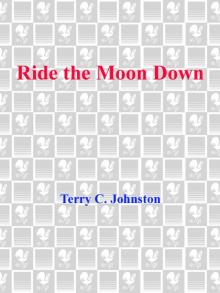 Ride the Moon Down
Ride the Moon Down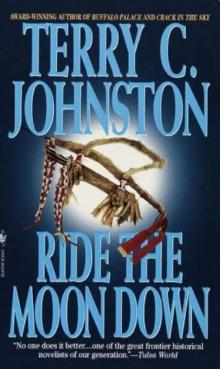 Ride the Moon Down tb-7
Ride the Moon Down tb-7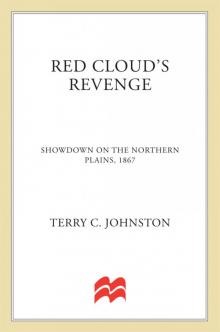 Red Cloud's Revenge
Red Cloud's Revenge Wind Walker
Wind Walker